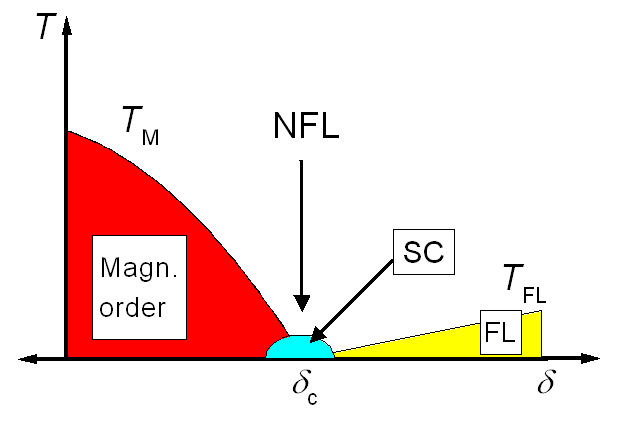Student Projects
Students who are interested in the physics of Quantum Electron Matter
are most welcome to
complete their research training for the
Bachelor project (15 EC)
Short master research project (6-12 EC)
Master research project (48-54 EC)
in the research group of dr. A. de Visser.
We investigate the electronic and magnetic structure of novel materials at
the quantum level. Research issues predominantly relate to fundamental
properties. The programme has a strong experimental component with a solid basis
in techniques for measuring thermal, magnetic and magnetotransport properties at
very low temperatures and high magnetic fields. We focus on strongly correlated
electron phenomena, notably quantum criticality and unconventional
superconductivity, and on topological insulators and superconductors.
We search enthusiastic and motivated students to carry out research on the following research issues.
Unconventional superconductivity: for a one
page discription click
here.
Topological
insulators: for a one page description click
here.
Quantum phase transitions in correlated metals: In this project we study novel phenomena, such as
unconventional superconductivity (SC) and the break-down of Fermi
liquid behaviour (NFL), that appear at a quantum critical point in
correlated metals. The basic idea is that the magnetic transition
temperature (TM) of a magnetically ordered correlated
metal may be tuned to zero temperature as function of a control
parameter δ (which may be pressure, doping or magnetic field).
The resulting phase diagram is sketched in the figure below.
At the quantum critical point a zero-temperature order-disorder phase transition
takes place and new physics emerges.
We prepare new intermetallic compounds and measure the thermal, magnetic and
transport properties at very low temperatures in order to extract the
quantum critical behaviour.
For a typical research topic see
Ferromagnetic quantum
critical point in
URhGe doped with Ru.
|
 |
Students may take part in various shorter and larger projects in the spirit of the research described above.
Do not hesitate to contact dr. A. de Visser.
